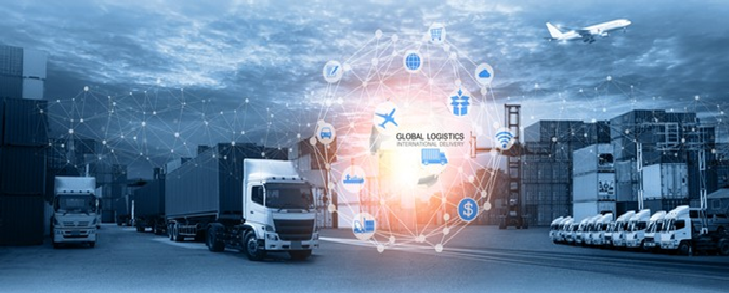A number of recent events such as a new worldwide wave of COVID-19, natural disasters in China and Germany, a cyber attack targeting key South African ports have conspired to drive global supply chains towards breaking point, threatening the fragile flow of raw materials, parts and consumer goods, according to companies, economists and shipping specialists.
The Delta variant of the coronavirus has devastated parts of Asia and prompted many nations to cut off land access for sailors. That’s left captains unable to rotate weary crews and about 100,000 seafarers stranded at sea beyond their stints in a flashback to 2020 and the height of lockdowns.
Vessel capacity is very tight, empty containers are scarce and the operational situation at certain ports and terminals is not really improving. Meanwhile, deadly floods in economic giants China and Germany have further ruptured global supply lines that had yet to recover from the first wave of the pandemic, compromising trillions of dollars of economic activity that rely on them.
In Germany, road transportation of goods has slowed significantly. In the week of July 11, as the disaster unfolded, the volume of late shipments rose by 15% from the week before, according to data from supply-chain tracking platform FourKites.
Ports across the globe are suffering the kinds of logjams not seen in decades, according to industry players. The China Port and Harbour Association said on Wednesday that freight capacity continued to be tight. A cyber attack hit South African container ports in Cape Town and Durban this week, adding further disruptions at the terminals.
Global vaccinations of seafarers are going too slowly to prevent outbreaks on ships from causing more trade disruptions, endangering maritime workers and potentially slowing economies trying to pull out of pandemic slowdowns.
For parts of the world where they are aiming to eliminate Covid, loopholes including maritime workers at container ports, are opportunities for the virus to break through,. They have to eliminate the risk coming off container ships. And if the risk to seafarers isn’t eliminated, then further port shutdowns and global supply disruptions are expected to be continued…
Read more at:
The floating traffic jams off ports. The multiplying costs of moving freight. The resulting shortages of goods. All of this had seemed like an unpleasant memory confined to the COVID-19 pandemic. But no such luck!
An ocean container capacity crunch has hit global trade just as peak shipping season starts, with freight spot rates up some 30% over the past few weeks and heading higher.
The first joint Europe-wide assessment of the drivers and impact of chemical pollution by the European Environment Agency (EEA) and the European Chemicals Agency (ECHA) has concluded that, despite progress in some areas, “more work is still needed to reduce the impact of harmful substances on human health and the environment”. Key findings include:
The severe drought which has forced the Panama Canal, one of the world’s busiest trade passages, to limit daily crossings could impact global supply chains during a period of high demand.
In the early hours of March 26, the Singapore-flagged ship Dali, loaded with 5,000 containers, slammed into Baltimore’s Francis Scott Key Bridge, causing the 1.6-mile (2.5-kilometer) bridge to collapse in a matter of seconds. The Dali was departing for Colombo when the disaster struck. Initial fears were confirmed that half a dozen people lost their lives in the accident.
The pharmaceutical and biotechnology industries constantly seek innovative methods to enhance product stability, solubility, bioavailability and ease of use. Within this realm, CDMOs [Contract Development & Manufacturing Organizations] serve as invaluable partners in the development and production of high-quality drug products.
Chinese New Year 2024 is upon us, disrupting logistics from Asia starting Feb 10th. This event is expected to impact global shipping until Feb 21. Freight rates from Asia has skyrocketed with rates to the US surging by 3.5X and Europe by 6X.
Amid ongoing Red Sea diversions by shipping giants like Maersk, CMA, logistics managers are globally confronting a dual challenge of escalating ocean and air freight prices alongside cargo disruptions due to
Why will CM be the next generation on quality?
